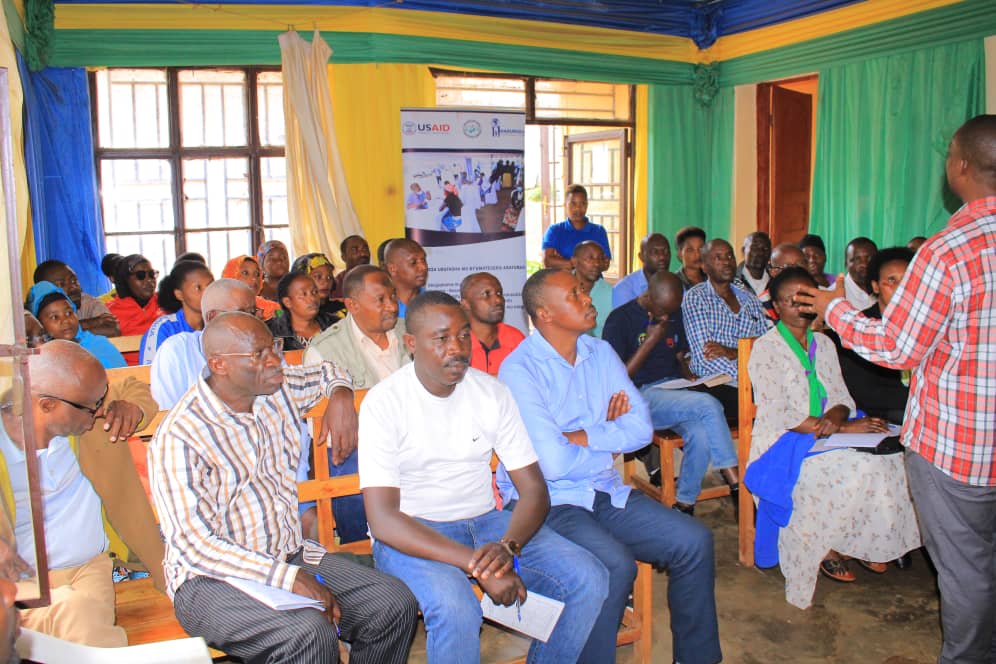Vulnerable people in society, in this case, women, young girls and children mostly, face a lot of difficulties. They are the ones who generally bear the brunt of any challenge that a community faces, be it poverty, abuse, conflicts among others.
This is why Haguruka thought it relevant to be an advocate for such groups in order for them to at least seek and find justice without difficulty.
In this perspective, through its five-year-project “Dufatanye Kubaka Ubutabera” (DKU) Haguruka seeks to increase access to quality justice for vulnerable people.
The project has been ongoing since January 2022, and it is being implemented under the leadership of the Legal Aid Forum and is funded by USAID.
Under the project, there has been implementation of a series of activities including conducting mobile legal aid clinics in districts such as Nyarugenge, Gicumbi, Rwamagana, Nyagatare, and Rusizi. There has also been legal representation for vulnerable people and GBV victims, and the training of Abunzi.
The training of Abunzi is precisely done to raise their awareness on key laws, mediation technics, gender equality and social inclusion.
By equipping them with these skills, the organisation endeavours to contribute to the strengthening of the rule of law, protection, and promotion of human rights and increasing access to justice as a key principle to enhance access to justice by Rwandans.
Through these services, Haguruka is able to facilitate beneficiaries who have limited financial means to access legal services and justice specifically those living in remote areas. Through this process, they are enabled to identify their legal issues and understand the alternatives for resolution in pursuing a legal solution.
These can include legal advice, referral/orientation to other service providers, legal briefs, and submission of cases to court via IECMS (Integrated Electronic Case Management System), etc.
Through the legal representation service, the organisation is enabling its rightsholders to get an easy way or free access to justice services.
This has also enhanced, at a very large scale, the partnership with local government specifically District authorities in general, and other civil society organizations in particular.


